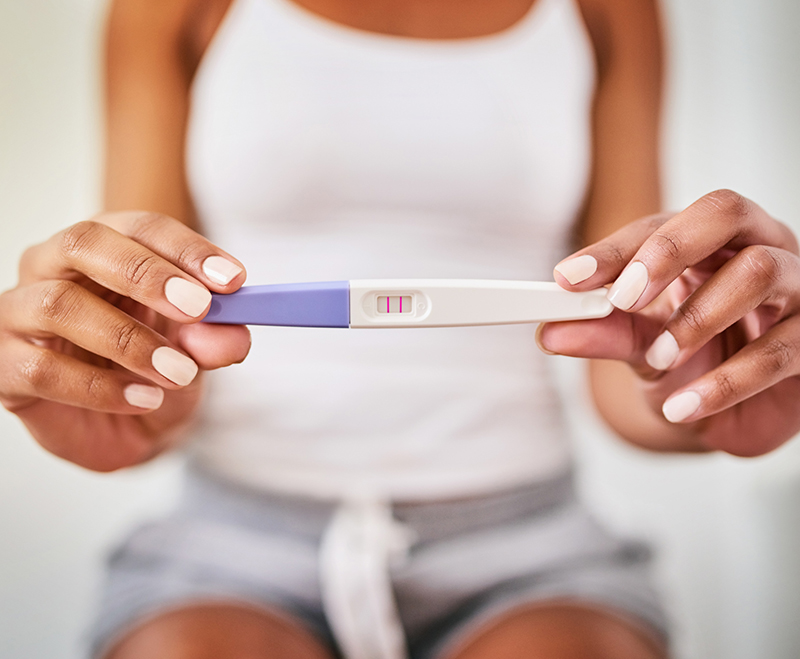Comprehensive Fertility Tests for Women: A Science-Backed Guide

Fertility is a cornerstone of women’s health, influencing family planning and overall well-being. In the UK, approximately one in seven couples face infertility challenges, with female factors contributing to nearly half of these cases. Identifying and understanding the causes of infertility in women is crucial for developing effective solutions.
This guide provides a detailed overview of the most common fertility tests for women, including hormonal assessments, imaging studies, and advanced diagnostic techniques, empowering you with the knowledge to take control of your reproductive health.
Understanding Female Fertility
Female fertility depends on several factors, including ovarian reserve, hormonal balance, uterine health, and the presence of any structural or genetic issues. Fertility tests help identify potential obstacles to conception and guide appropriate treatment.
Medical History and Physical Examination
Medical History
A thorough medical history forms the foundation of fertility assessment. Your doctor will ask about:
- Menstrual history: Irregular or absent periods may signal ovulation issues or hormonal imbalances.
- Past illnesses and surgeries: Conditions like pelvic inflammatory disease (PID) or endometriosis can affect fertility.
- Family history: Genetic conditions or early menopause in family members can indicate potential risks.
- Lifestyle factors: Smoking, alcohol use, obesity, and high stress levels are all linked to reduced fertility.
Physical Examination
The physical exam focuses on:
- Pelvic health: Checking for signs of pelvic pain, tenderness, or abnormalities.
- Weight and BMI: Obesity or being underweight can disrupt hormonal balance and ovulation.
- Thyroid examination: Thyroid dysfunction is a common but treatable cause of infertility.
Ovulation Testing
How It Works
Ovulation is critical for conception. Testing typically involves:
- At-home kits: These measure luteinising hormone (LH) in urine, which surges before ovulation.
- Basal body temperature (BBT): Tracking temperature changes can help identify ovulation patterns.
Blood Tests for Ovulation
A progesterone test is often conducted around day 21 of a regular cycle to confirm ovulation. Low levels may indicate anovulation (failure to ovulate).
Hormonal Testing
Key Hormones Assessed
- Follicle-Stimulating Hormone (FSH): High FSH levels can indicate diminished ovarian reserve.
- Luteinising Hormone (LH): Abnormal LH levels may signal polycystic ovary syndrome (PCOS).
- Anti-Müllerian Hormone (AMH): This marker helps assess ovarian reserve and egg quantity.
- Thyroid-Stimulating Hormone (TSH): Thyroid dysfunction can affect menstrual cycles and ovulation.
- Prolactin: Elevated prolactin can suppress ovulation, causing irregular periods.
Clinical Significance
Hormonal imbalances are treatable with medications, lifestyle changes, or assisted reproductive technologies.
Imaging Studies
Imaging techniques provide valuable insights into uterine and ovarian health.
Pelvic Ultrasound
A transvaginal or abdominal ultrasound is used to:
- Assess ovarian reserve by counting antral follicles.
- Detect conditions like PCOS, fibroids, or ovarian cysts.
- Evaluate uterine lining thickness.
Sonohysterography (Saline Ultrasound)
This test involves injecting saline into the uterus to get a clearer view of the uterine cavity, identifying issues like polyps, adhesions, or septa.
Hysterosalpingography (HSG)
What It Is
An HSG is an X-ray procedure that evaluates the fallopian tubes and uterus. Dye is injected into the uterus, and its flow is monitored to check for:
- Blockages: Tubal blockages are a common cause of infertility.
- Uterine abnormalities: Polyps, fibroids, or scarring may be detected.
Importance
This test is crucial for diagnosing structural issues that may impede conception.
Ovarian Reserve Testing
Tests for Ovarian Reserve
- AMH Levels: A reliable indicator of egg quantity.
- Antral Follicle Count (AFC): Conducted via ultrasound to estimate the number of follicles.
- FSH Levels: High levels may suggest reduced ovarian reserve.
Why It Matters
Understanding ovarian reserve helps determine the likelihood of natural conception and guides fertility treatment options.
Genetic Testing
Genetic testing identifies hereditary conditions that may affect fertility or pregnancy outcomes.
Types of Tests
- Karyotyping: Detects chromosomal abnormalities that could cause recurrent miscarriages.
- Single-Gene Testing: Identifies mutations in genes associated with conditions like cystic fibrosis or fragile X syndrome.
When It’s Recommended
Genetic testing is often advised for women experiencing recurrent pregnancy loss or those with a family history of genetic disorders.
Laparoscopy
What It Is
A minimally invasive surgical procedure that provides a direct view of the reproductive organs.
Uses
- Diagnosing and treating endometriosis.
- Identifying pelvic adhesions or scar tissue.
- Checking for ovarian or uterine abnormalities.
Endometrial Biopsy
An endometrial biopsy involves removing a small tissue sample from the uterine lining for analysis.
Purpose
- Evaluating uterine receptivity for implantation.
- Diagnosing chronic endometritis or hormonal imbalances.
Advanced Tests for Fertility
DNA Fragmentation Testing
This test examines the integrity of egg DNA. Damage or fragmentation may impact fertilisation and embryo development.
Thrombophilia Screening
Certain blood clotting disorders can affect pregnancy outcomes, especially in cases of recurrent miscarriage.
Taking Control of Your Fertility
Fertility testing for women is a multifaceted process involving medical history, blood tests, imaging studies, and specialised diagnostics. These tests provide critical insights into reproductive health, paving the way for personalised treatment plans.
If you’re experiencing difficulties conceiving, consulting a fertility specialist is the first step. With advancements in reproductive medicine, many obstacles can be overcome, helping you achieve your family-planning goals.
FAQs
What lifestyle factors can affect female fertility?
Smoking, excessive alcohol consumption, obesity, and high stress levels can all negatively impact fertility.
What does ovarian reserve testing measure?
It assesses the quantity of eggs remaining in the ovaries using tests like AMH levels and antral follicle counts.
What is the purpose of a hysterosalpingography (HSG)?
An HSG checks for blockages in the fallopian tubes and abnormalities in the uterus.
How is PCOS diagnosed?
PCOS is often diagnosed through a combination of symptoms, blood tests (elevated LH levels), and ultrasound findings.
When is genetic testing recommended for women?
It is suggested for recurrent pregnancy loss, a family history of genetic disorders, or known hereditary risks.
Can hormonal imbalances be treated?
Yes, treatments include medications, lifestyle changes, and sometimes assisted reproductive technologies.

